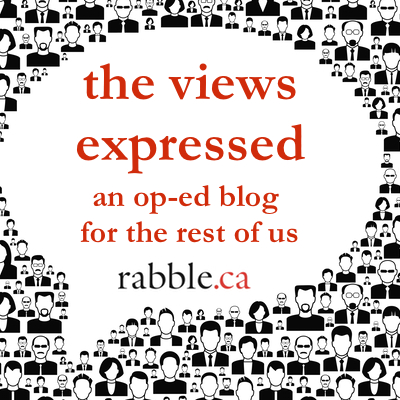The accelerated decline of Canada’s democracy began long before Stephen Harper and will continue after him -– unless an awakened Canadian public demands changes. But it appears that our prime minister would prefer to have exclusive credit for the sorry state of Canadian democracy, given the way he and his party have intensified their assault in recent months.
Let us consider two examples that have been in the news of late.
Misusing taxpayers’ money
While estimates vary, it appears that the Harper government has spent half a billion dollars on advertising contracts over the five year period ending in 2014. These expenditures included $15 million promoting “Canada’s Economic Action Plan,” a stimulus spending initiative that ended nearly two years before.
Also included were expenditures promoting initiatives that had not yet been legislated.
The latest example of this practice is a new video of Employment Minister Pierre Poilievre approaching parents in a clothing store and telling them about the benefits they will receive as a result of the latest federal budget. This item is presumably part of the $7.5 million that it is estimated will be spent by the government promoting its budget.
What is particularly disturbing about the Poilievre video is that it was produced by staff in his department, including three public servants who were paid overtime on a Sunday to make the film. The department confirmed that there is a five member “creative production team,” first established in 2008, which is responsible for producing videos and photography.
Using money from taxpayers to finance blatantly political ads is unethical. Spending half a billion dollars in this manner while constantly claiming to be concerned with leaving money in the hands of hard-working Canadians is spectacularly hypocritical. Having public servants involved in such activity is a dangerous politicization of a role which is supposed to be carried out in a neutral, impartial manner.
Abusing the rule of law
One of the fundamental principles of our democratic system is that governments can only act on the basis of laws that are examined, debated, and then passed by parliament. Ensuring adequate scrutiny of proposed laws has been an increasing challenge for opposition parties, especially given the growth in the scope and complexity of legislation over the past half century and more.
As I have written elsewhere, opposition parties now find their work stymied by the frequent use of omnibus bills and by the imposition of closure motions that restrict the time available for debate.
The Conservative government has established a practice of introducing budget omnibus bills that often contain legislative changes entirely unrelated to the budget. They have done so again with respect to the 2015 budget and one of the legislative items that they tried to tuck away in the omnibus bill is a breathtakingly brazen retroactive law that sets a very dangerous precedent if it as allowed to stand.
The issue in question concerns the actions of the RCMP in 2012 in destroying records from the long gun registry that the government had scrapped. Canada’s information commissioner had requested that the Mounties not take this action because the records were the subject of a request under the Information Act. That Act makes it a criminal offence to obstruct the commissioner and to destroy records with the intent to deny a requester’s right to information.
In an attempt to ensure that there would not be any legal repercussions from the actions taken by the RCMP, the government included a clause in the new 167 page omnibus budget bill that exempts all records from the long gun registry from the Freedom of Information legislation. This exemption is to be retroactive to October 2011, when the government introduced legislation to scrap the registry.
Let’s take a moment to digest this. What we seem to have is a government which, faced with the possibility that actions taken on its behalf may have been illegal, changes the law and extends it backward in time so as to render the offending action acceptable.
Talk about a slippery slope! Is there no end to the democratic abuses that this government will perpetrate?
Is there a limit to the public tolerance of this kind of behaviour?
Richard Tindal, Ph.D, has been teaching, researching, writing and consulting in the field of government for close to 50 years. He is the author or co-author of several text books including A Citizens’s Guide to Government and Local Government in Canada, now in its eighth edition, with a ninth forthcoming. He writes from his home in Kingston, Ontario. His latest book, Reviving Canadian Democracy, is a short call to action book designed to enrage and then engage Canadians in the battle to restore our democratic principles and practices.



